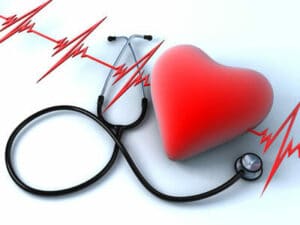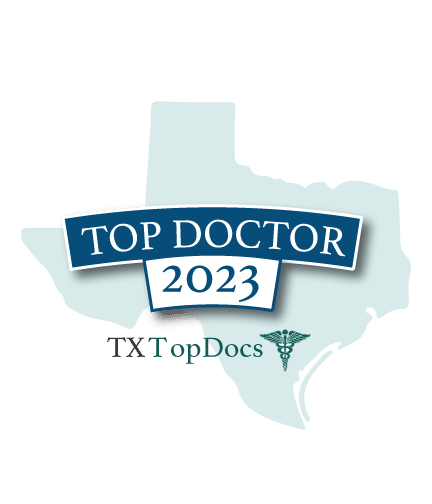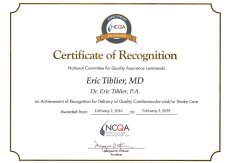Heart Disease
Heart disease is considered the primary cause of death for men and women in the country. Recent studies show roughly 650,000 individuals die each year as a result of heart disease. Each year about 800,000 men and women also suffer their first heart attack, frequently leading them down the road to more damaging heart problems. This disease takes a huge toll on many individuals’ lives. There are several steps you can take to help decrease your risk of developing heart disease. Many people think of coronary heart disease, which is the narrowing of the arteries leading to the heart. However, there are various kinds of heart disease in existence. Learn more about the anatomy of a heart.
Dr. Tiblier can provide treatment options that are specifically designed for each patient’s individual needs. We can hlep you prevent and treat coronary artery disease, arryhthmias, congestive heart failure, hypertension, and hyperlipidemia.
Click a condition below to view more information
Heart Disease Topics
One’s heart generally beats 60 to 100 times each minute, and when you have any abnormality, it’s known as an arrhythmia. This can happen in several forms; a rhythm change or a rate change to much higher or lower than normal.
Coronary heart disease occurs when the arteries harden, and this frequently leads to possible heart attacks. This is a result of a decrease in the oxygen which travels to the heart.
Heart failure occurs when one’s heart is not pumping as efficiently as it should. This has an effect on more than 5 million Americans, specifically individuals over the age of 65. It might lead to water retention, swelling, and difficulty breathing.
What Causes Heart Disease?
There are many causes of heart disease, including:
- Poor Diet
- Poor Exercising Habits
- Smoking
- Excessive Stress
- Being Overweight
What are My Risk Factors?
There are a few heart disease risk factors that you will be able to control and some you cannot. Things which are uncontrollable are: gender, old age, family history of heart disease, being post-menopausal, and also your race. Every race does is susceptible to the condition, but African Americans, American Indians, and Mexican Americans are at a greater risk of getting the disease when compared with Caucasians.
There are many risk factors for heart disease which every individual can manage. Anyone can help to eliminate risks by making changes in their way of living. The controllable factors are: don’t smoke, improve cholesterol levels, manage high blood pressure, regulate diabetes, be active, eat well, control stress, and achieve and maintain a healthy weight.
How Can I Prevent Heart Disease?
To help protect against heart disease, an exercise program is critical. If you currently have heart disease, it’s very important to be active and fit. This will be done with the authorization of your physician in order to avoid any hazards to your health. Your doctor will establish a program which is suitable for you and your specific condition. What physical exercise does for the heart is incredible. The heart muscles themselves grow to be stronger and blood flow is enhanced at the same time. Of course, exercise also keeps your weight in check and also helps boost your HDL, or good cholesterol levels.

If you have heart disease you need to take precautions when you exercise. If you feel any of the follow symptoms you should immediately stop exercising. These include: chest or arm discomfort, difficulty breathing, heart palpitations, or severe fatigue.
It is crucial for everybody to adhere to a heart healthy diet. Doing this can help lessen your likelihood of developing heart disease down the road. When you have heart disease, it’s even more vital that you eat a healthy and well-balanced diet. This can minimize bad cholesterol, also referred to as LDL, and reduce blood pressure and blood sugar levels. Only eat good fats, because these fats are the ones which are full of Omega 3 fatty acids. These can be found in fish, like salmon and tuna. It’s also present in vegetable oils, like olive and canola oil. You need to minimize saturated fats and trans fats because these are unhealthy for your heart.
What Treatment Will I Need?
If you have heart disease, then you’ll need to have some kind of heart disease treatment in order to take care of your condition. There are numerous heart disease treatment plans that are available these days. The first treatment is, of course, prevention as mentioned above.
However, if your heart disease is severe, then you will likely also need to use more serious approaches to heart disease treatment. This consists of medical treatment, which will generally be started immediately, even before an exact diagnosis of a heart problem is made.
This medical treatment might consist of oxygen from a tube in the nose, oxygen via a face mask, nitroglycerin underneath the tongue, medications, and so on. Additionally, there are clot dissolving medicines which are often given, and the earlier these drugs are provided, the higher the likelihood is of opening the blocked artery and defending the cardiac muscle from additional injury.
Surgery can be carried out on people who experience heart disease at any age, although other methods are preferable. Surgery is needed for people who don’t react to their medicines or whose condition declines drastically. In some cases, surgery is the best way to fix the problem and give the patient a chance at great health once again.
How Can Austin Cardiac Help?
The Austin Cardiac Clinic offers personalized heart disease treatment for the following:
- Coronary Artery Disease
- Hypertension/Elevated Blood Pressure
- Advanced Lipid/Cholesterol Management
- Congestive Heart Failure
- Heart Valve Disorders
- Heart Rhythm Disorders
- Pacemakers
- Varicose Vein Management
- Edema/Swelling
- Peripheral Arterial Disease
- Palpitations


